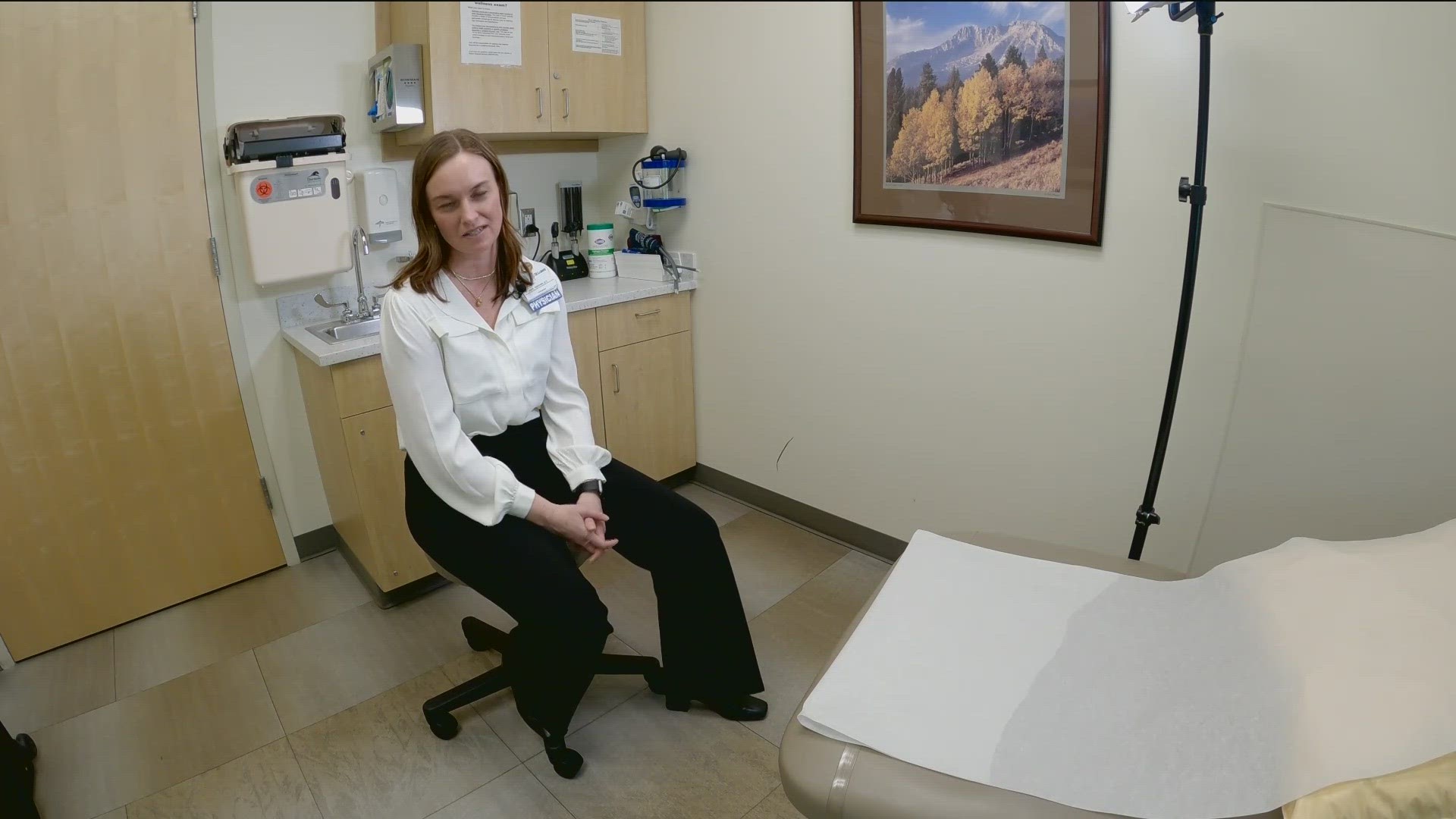Life hasn't been the same since catching COVID in November 2020; before the myriad of variants, before vaccines, before the pulmonary fibrosis diagnosis.
Judy Cross, now 76 years old, has fought lingering COVID symptoms for nearly three years.
"[Pulmonary fibrosis] is a death sentence after three to five years," Cross said. "That was scary to me."
Brain fog, difficulty breathing, extreme fatigue, arthritis - they all fit into her experience somewhere since the initial infection. Dr. Jodie Donovan worked to create the St. Luke's COVID Recovery Clinic for these people precisely.
"At the end of 2020, we noticed that there were patients that had additional COVID symptoms, they that were then coined long COVID," Dr. Donovan said. "It looks like, for some of the subset of patients, [symptoms] might be permanent for them. We have patients that are moving towards disability, and it's very serious. Unfortunate side effects of the COVID-19 infection."
At the clinic, Dr. Donovan research Long COVID literature regularly. She notices trends locally in alignment with the national reports:
- Long COVID tends to mostly impact between 35 to 50 years old.
- Women are at a higher risk than men.
- 10-30% of patients with mild initial symptoms will experience Long COVID.
- 50-70% of hospitalized patients will experience Long COVID.
The St. Luke's clinic has seen patients fighting off symptoms for months and even years; this includes people infected by the original variants, Delta, Omicron, and others, according to Dr. Donovan.
"I think some patients may think that Omicron is less severe, so maybe you would have less symptoms from a long COVID perspective, but that's not really true," Dr. Donovan said. "I have some I have 20-year-olds coming in who can't do what they would normally do. You know get out of bed, go hang out with their friends, go to school, go to college, I've had some patients and that age range have to drop out of school. They I have some other patients who are unable to do their work capabilities."
For Cross, her work capabilities we're took place inside the wall of St. Luke's for decades. She retired before her initial infection.
"I worked as a nurse at St. Luke's for 40 years and took care of everybody else," Cross said. "I felt so guilty that I couldn't go in and help."
Instead, it was her turn to receive help.
Lugging around an oxygen tank on her back, still smiling like a student on the first day of school, Cross credits the work done inside the COVID Recover Clinic for balking her prognosis.
"That clinic, being able to go to the cardiopulmonary rehab saved my life," Cross said. "I am recovering."
Her life isn't the same, she knows that. But her life isn't over, either.
Belonging to the clinic allows Cross to access doctors more frequently and receive specialized treatment for her specific symptoms. This includes her referral to a physician at the University of Washington with specialty in treating pulmonary fibrosis.
There's a lot we don’t know yet, Cross said - leaning on her background as a nurse for four decades. But there's a lot we continue to learn, too.
Her finest example, a prognosis isn't set in stone.
"I don't know," Cross said. "I may beat the odds."
Watch more Local News:
See the latest news from around the Treasure Valley and the Gem State in our YouTube playlist:

